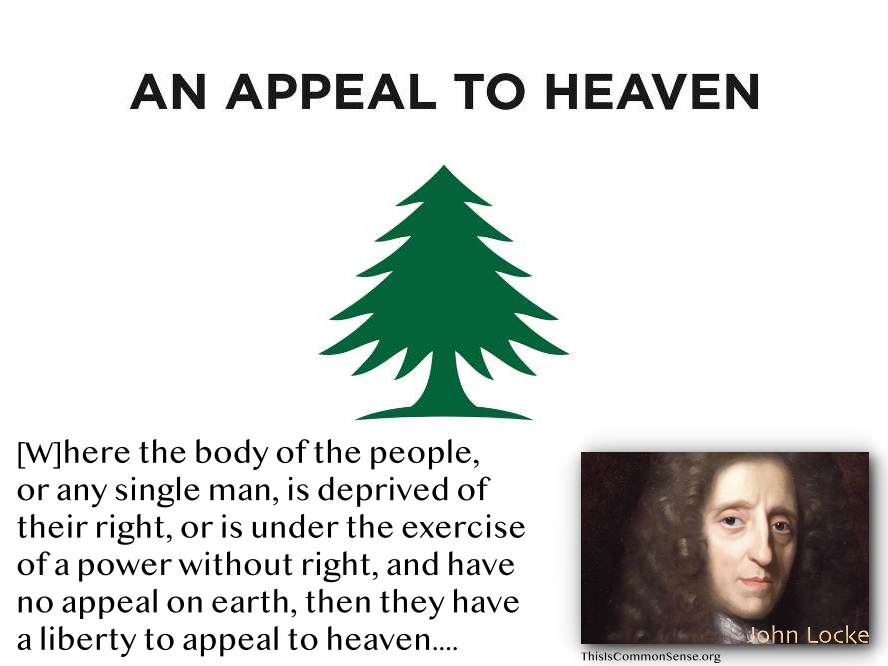[B]etween an executive power in being, with such a prerogative, and a legislative that depends upon his will for their convening, there can be no judge on earth; as there can be none between the legislative and the people, should either the executive, or the legislative, when they have got the power in their hands, design, or go about to enslave or destroy them. The people have no other remedy in this, as in all other cases where they have no judge on earth, but to appeal to heaven: for the rulers, in such attempts, exercising a power the people never put into their hands, (who can never be supposed to consent that any body should rule over them for their harm) do that which they have not a right to do. And where the body of the people, or any single man, is deprived of their right, or is under the exercise of a power without right, and have no appeal on earth, then they have a liberty to appeal to heaven, whenever they judge the cause of sufficient moment. And therefore, though the people cannot be judge, so as to have, by the constitution of that society, any superior power, to determine and give effective sentence in the case; yet they have, by a law antecedent and paramount to all positive laws of men, reserved that ultimate determination to themselves which belongs to all mankind, where there lies no appeal on earth, viz. to judge, whether they have just cause to make their appeal to heaven. John Locke, Second Treatise of Government, Sec. 168.
Categories
John Locke
